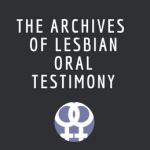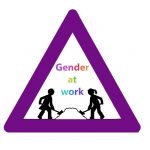 The Archives of Lesbian Oral Testimony (Web)
The Archives of Lesbian Oral Testimony (Web)
Description: „Lesbians and queer women have been excluded from the official historical record, but their experiences tell a great deal about the past. They reveal what it meant for a woman to desire and love other women, and to survive and resist against a culture that treated them as sinful and deviant. Their stories open a window onto a world that once was, and help us imagine a world that might yet be.“
The Archives of Lesbian Oral Testimony is a Canadian initiative. It collects and makes available the oral histories of people who presently or at one time identified as same-sex and same-gender attracted women.
The Podcast
By mid-2018, the acitvists of the Archives of Lesbian Oral Testimony were also running „The Lesbian Testimony Podcast“. More than 25 episodes are available online on the website.
In each episode, the radio producers spoke with dedicated researchers from the broad field of lesbian history and queer history – as well as with activists from the women’s, lesbian and trans community (Web).
The Archives of Lesbian Oral Testimony
The Archives of Lesbian Oral Testimony was founded in 2010 in Canada. The acitvists digitize and make available online oral histories and testimony of same-sex and same-gender attracted women, inclusive of Two Spirit, queer, bisexual, and lesbian women, transmen, and others. The archives and the web site is supported by and operates out of Simon Fraser University Library’s Special Collections and Rare Books. Read more … (Web)







